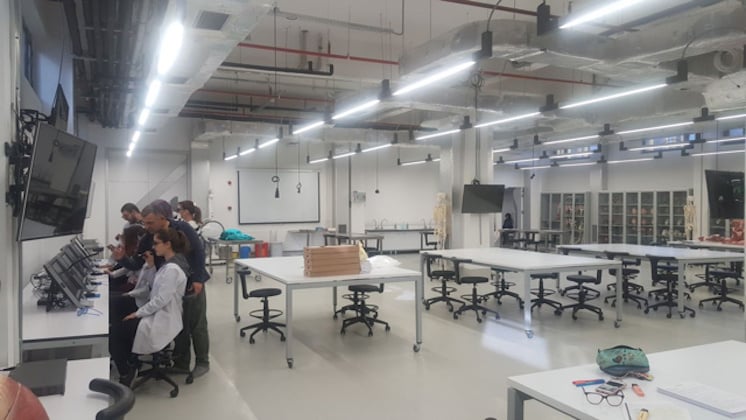
January 10, 2018
VR Anatomy Lab Opens in Turkey
TOBB ETÜ in Ankara launches Turkey's first VR anatomy lab, enhancing medical education with AR/VR for learners from K-12 to surgical residents.
TOBB University of Economics and Technology (TOBB ETÜ), situated in the vibrant city of Ankara, Turkey, has recently taken a monumental step forward in medical education by unveiling a state-of-the-art virtual reality anatomy lab. This groundbreaking facility, which incorporates advanced zSpace Augmented and Virtual Reality (AR/VR) technology, stands as the first of its kind in Turkey, marking a significant milestone in the integration of cutting-edge technology into medical education.
The medical school at TOBB ETÜ, although a relatively young program, is rapidly gaining recognition for its commitment to integrating the latest technological advancements into its curriculum. This dedication to innovation is evident in their comprehensive approach to anatomy education. The university already houses the state’s premier cadaver-based training center, where students engage in traditional cadaver dissections, learn through the process of plastination—a technique that preserves bodies or body parts for educational and instructional purposes—and utilize high-quality anatomical models such as those produced by Somso. Now, with the addition of the zSpace virtual reality technology, the university is poised to offer an unparalleled educational experience.
The anatomy lab is designed to serve a diverse range of students, spanning from young learners in K-12 educational programs to advanced surgical residents. This wide-reaching application highlights the versatility of the lab and its commitment to fostering a deep understanding of anatomical structures and functions across various educational levels.
Associate Professor of Anatomy, Selcuk Tunali, MD, PhD, expressed his enthusiasm about the lab’s potential, stating, “This lab will be the leading anatomy VR lab in Turkey. Students and residents will use the zSpace before cadaveric dissections. I think this will provide them a better understanding about the 3D organization of the body.” His statement underscores the lab’s role in enhancing spatial comprehension of anatomical structures, which is crucial for future medical professionals.
Furthermore, TOBB ETÜ is leveraging this new facility to host meetings and workshops, aiming to introduce medical students and faculty from institutions across Turkey and internationally to this innovative educational technology. By doing so, the university is setting a precedent for collaborative learning and technological exchange, fostering an environment where knowledge transcends geographical boundaries.
This initiative reflects a broader trend in medical education where technology is increasingly utilized to complement traditional teaching methods, providing immersive and interactive learning experiences. Virtual reality, in particular, offers significant advantages, such as the ability to visualize complex anatomical structures in three dimensions, practice surgical techniques in a risk-free environment, and facilitate remote learning opportunities.
By integrating such technologies, TOBB ETÜ is not only enhancing its educational offerings but also contributing to the evolution of medical education on a global scale. The university’s pioneering efforts in this field are likely to inspire other institutions to adopt similar approaches, ultimately shaping the future of medical training and improving patient care outcomes.